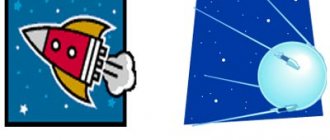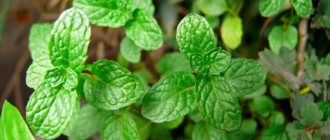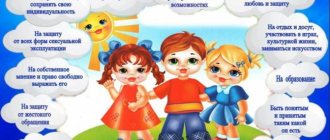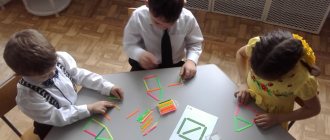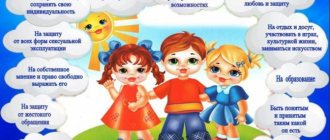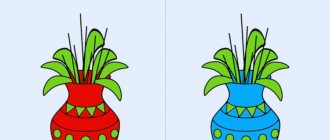Progress of the game:
Children are divided into two teams. The first one has a carrot seed in his hands, the second one has a watering can, the third one has nothing. at the opposite end of the site there is a box in which a carrot is hidden - this is a garden bed. At the signal, the first participants run to the garden bed, put a seed in it and, returning to the team, pass the baton to the next participant. The second participant runs to the garden bed, runs around it, imitating watering and returns, passing the baton to the next participant, the third participant runs to the garden bed, finds it in the garden bed (box)
carrots and runs back.
“Brewing vitamin compote”
Program content:
• Continue to develop knowledge about what useful preparations can be made from medicinal plants .
• Continue to develop coordination of movements, agility, and speed.
• Continue to develop teamwork skills
• Cultivate friendly relations with children, the ability to empathize with each other
Progress of the game:
Two adults are holding a taut rope with apples tied to it on a string. At a signal, the child with his eyes closed walks towards the string (apple tree), finds an apple by touch and picks it.
"Planting carrots"
Program content:
• Continue to build knowledge about the growth stages of carrots
• Continue to develop coordination of movements, agility, and speed.
• Continue to develop teamwork skills
• Cultivate friendly relations with children, the ability to empathize with each other
Progress of the game:
The children are behind the starting line, each holding a bucket. Various mushrooms are laid out throughout the hall (russula, porcini, fly agarics, etc.)
.At a signal, children begin to collect mushrooms according to instructions: only white ones, only edible ones. The one who quickly and correctly completes the task wins.
"Jump to the Apple"
Program content:
• Strengthen children's knowledge of how apples grow
• Develop coordination of movements, jumping ability, ability to navigate in space
• Maintain a good mood
Progress of the game:
Children are divided into two teams, each child holds rowan berries, cranberries, and apples. On the opposite side of the site there is a “Jar” for compote. At the signal, the first participant runs to the jar. puts his fruit or berry into it and, returning back, passes the baton to the next participant. The relay ends when the last participant crosses the start-finish line.
"Mushroom soup"
Program content:
• Continue to develop knowledge about how we can use medicinal plants .
• Continue to develop coordination of movements, agility, and speed.
• Continue to develop teamwork skills
• Cultivate friendly relations with children, the ability to empathize with each other
Preparatory group
We offer games to consolidate and generalize knowledge about flora, expand horizons, and develop cognitive activity in preschoolers preparing for school.
Make a plant from parts
The game requires pictures divided into parts, each part representing a specific plant organ: stem, root, leaves, flowers. The game task is to create a plant from parts of the picture. It is important that the depicted representatives of the flora belong to different categories: trees, shrubs, herbs, vegetables, flowers.
Didactic game “Groups of plants”
The teacher lays out 4 pictures in front of the players, depicting plants of certain groups. The game task is to identify the extra image.
Here are the categories:
- shade-loving plants - lily of the valley, sunflower, fern, ivy;
- wild - nettle, plantain, burdock, strawberry;
- blooming - juniper, aster, lilac, flax;
- medicinal - chamomile, hawthorn, sedge, coltsfoot;
- poisonous - henbane, clover, crow's eye, castor bean;
- conifers - spruce, pine, cypress, hornbeam.
Vegetable shop
Before the game starts, the teacher tells the children that agricultural crops are taken to vegetable warehouses for storage and to enterprises for processing and preservation. Fruits and vegetables that are stored fresh must be periodically sorted for spoilage. And those fruits that are immediately processed cannot be stored for a long time and quickly rot.
Children are divided into two groups: the first play farmers bringing the harvest, the second play specialists in receiving goods. To play the game you need to make images of different vegetables, berries, fruits, and also put two tables: one will be a vegetable storage, the second will be a processing plant. Each farmer player takes a picture, approaches the goods distributor with it, and he determines where the products will go: to storage or for processing.
Forester
A game played in the forest makes familiarization with plants more effective. The teacher, playing the role of a forester, goes with the children to the forest. This could be a forest belt, a city park. The forester lays out a convenient route for the children, but does not directly tell them where to turn, but describes a tree or bush, followed by a turn. Based on the description of the foliage, the color of the bark, the splendor of the crown and other parameters, attentive preschoolers must guess where to move.
Progress of the game:
Participants are divided into two teams, the first has a watering can in his hands. Then, after 2 m lies the first small hoop, then after 1 m another one, etc. according to the number of team members, these are the beds on which the crop grows . At the signal, the first team member runs, runs around all the beds, simulating watering, and, returning to his team, passes the watering can to the next participant. The first team to complete the task, whose last member is the first to cross the start-finish line, wins.
"Gathering the Harvest"
Program content:
• Continue to build knowledge about how plants grow .
• Continue to develop coordination of movements, agility, and speed.
• Continue to develop teamwork skills
• Cultivate friendly relations with children, the ability to empathize with each other
Progress of the game:
Children are on the starting line, each holding two wooden plates (these are wet shoes)
.
On the opposite side of the hall there are landmarks (a bucket for cranberries)
. At a signal, children place the first plate, stand on it, then put the second, step from the first plate to the second, trying not to get their feet wet, then take the first plate, move it forward, put it on the floor, step on it, take the second, etc. until the end of the distance. The winner is the one who gets to the bucket with cranberries faster.
"Collect a picture "
Program content:
medicinal plants by appearance
• Strengthen the ability to collect cut pictures
• Continue to develop teamwork skills
• Foster feelings of collectivism
Progress of the game:
Children with buckets in their hands are on the starting line; all over the hall there are lids scattered on the floor - these are cranberries in a swamp. At the signal, the children begin to collect cranberries in buckets until there are none left. Then the results are counted. The one who collects the most cranberries wins.
"For cranberries in the swamp"
Program content:
• Reinforce children’s knowledge that cranberries grow in a swamp
• Develop agility, sense of balance, coordination of movements
• Develop the ability to achieve a goal
